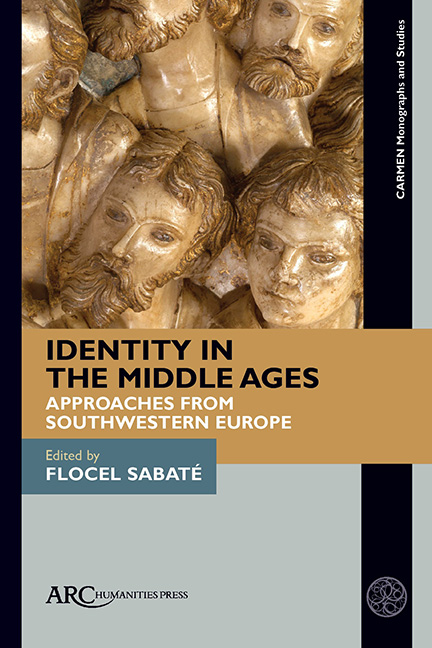Book contents
Chapter 3 - Personal Names And Identity In The Iberian Peninsula
Published online by Cambridge University Press: 20 January 2022
Summary
SINCE ANTIQUITY, MAN has used names to assert his individual identity, which, in turn, distinguished him from his peers. In some cultures, a name was given to a person in accordance with one of their physical or spiritual attributes, and thus it was not bestowed on them at birth, but when they had started to mature or show a certain predisposition or skill. Therefore, it was not a stable name and it could vary throughout the person's life. However, as societies started to evolve culturally, the name given to a person became more in keeping with a wish than a reality, that is to say, a name with symbolic content—which, as religion gained prominence in the history of humanity, was mainly religious—was bestowed on the child at baptism, with the hope that its meaning served as a role model or spiritual inspiration.
In the biblical world, we see how this choice is made before birth and how, when the Lord's messengers announce to Abraham that his wife Sara, who is an old woman eavesdropping on the conversation, will be a mother, she starts to laugh. It is then that the angels tell Abraham that the child will be called Isaac, which means laughter. This is not a unique case and, as we see in the sacred books of the Jews, there are many other similar onomastic explanations, for example, Moses, which means “saved by the waters.”
Therefore, we must keep in mind that in ancient times, an individual's name was quite original, and that its repetition solely arose from the need to name successive generations. Hence the inspiration for the project that lies behind the present chapter, because the bestowing of a personal name, a first name according to the Christian religion, sheds light on each period's way of thinking and even different family structures.
An Approach to a Medieval Repertoire of Names in the Iberian Peninsula
As Jaime de Salazar Ancha indicates in his Manual de Genealogía Española, the Spanish traditional onomastic repertoire is formed primarily from three main sources: Latin, which was common in early Roman Hispanics; Germanic, and specifically Visigoth onomastics; and Jewish, and more particularly biblical, which has entered Spanish onomastics through religious devotion.
- Type
- Chapter
- Information
- Identity in the Middle AgesApproaches from Southwestern Europe, pp. 113 - 122Publisher: Amsterdam University PressPrint publication year: 2021



